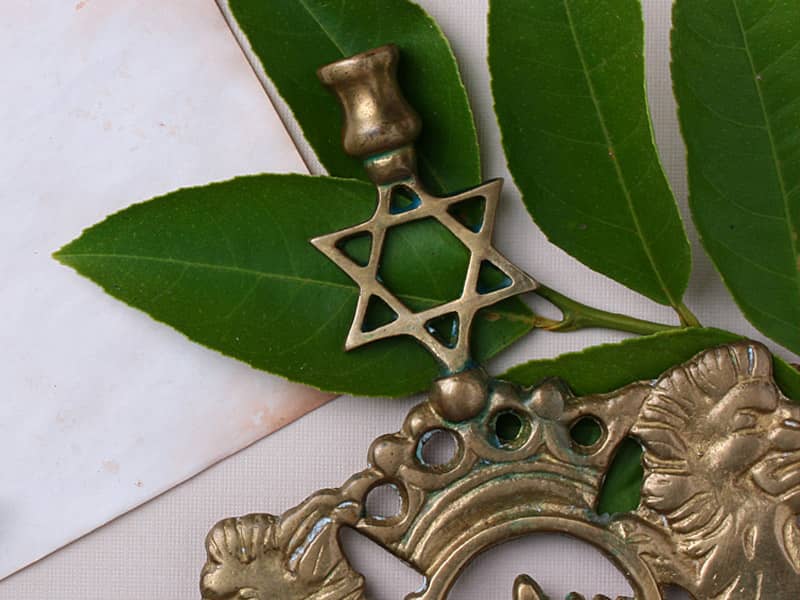The suddenly ubiquitous Christmas music should have reminded us that Hanukkah was quickly approaching, but it's so early this year that it still kind of snuck up on us. With just three weeks to go, we had done nothing to prepare, so we sat down to think about what we could do this year to make Hanukkah special for our three-year-old son, Caleb. Jewish parents across America know that, despite our best efforts, Hanukkah must compete with Christmas for the affections of our children, and parents of all stripes know that early holiday experiences set the stage for how children will feel about future celebrations.
Our first chance to mold Caleb's understanding of Hanukkah came last year, under less than ideal conditions. David, an Air Force officer, began a three-month overseas deployment to the Balkans about a week before Hanukkah began. It wasn't the first time in our married life that the Air Force had taken David away from home, but it was the first time since Caleb was born. It also happened to be the first year that Caleb was old enough to really be aware of Hanukkah. So while the other families at the Jewish preschool Caleb attends would be celebrating together, and while families across America were uniting for the holidays, we faced Caleb's first "real" Hanukkah separated by an ocean.
We didn't want Caleb's first impression of the nightly Hanukkah traditions--lighting the menorah, spinning the driedel, giving gifts, singing songs, eating gelt--to be dominated by David's absence and by Shayna's resulting melancholy. So Shayna tried to make our home as festive as possible, decorating and stringing Hanukkah lights. But she wondered what else she could do to make David a part of Hanukkah for herself and Caleb, and to make herself and Caleb a part of Hanukkah for David.
This nightly Judeo-technological ritual was the most important part of Hanukkah for us last year. It gave Caleb a chance to talk to his "Daddio" overseas, and in doing so, helped him feel David's presence at their nightly celebration. And each day, thousands of miles away, in places like Bosnia or Macedonia, Shayna and Caleb became part of David's Hanukkah.
This year, Caleb is even more aware of the world around him, and we have another chance to strengthen his Judaism by giving him the kind of Hanukkah we hope he will someday remember fondly. We will of course be practicing those timeless Hanukkah traditions, and Caleb is especially excited about finally getting a chance to light his menorah again. But while last year's festivities were subdued by the weight of David's absence, this year we will celebrate unencumbered, and our home will be alight with decorations, food, gifts, and friends.
While we won't need the thoroughly modern tools we used last year to celebrate this ancient holiday, the demands of military service could easily put us in a position to need them in the future. But for this year, undistracted by family separation, Hanukkah will be a time for us to rededicate ourselves to justice, as our ancient ancestors experienced the Hanukkah miracle of rededication. This year, we will celebrate with joy the religious and cultural freedom that the Macabees and generations of Jews and Americans--including David and his military colleagues--have fought for. This year, together, the eight days of Hanukkah really will be eight days of light amidst the darkness of winter.

